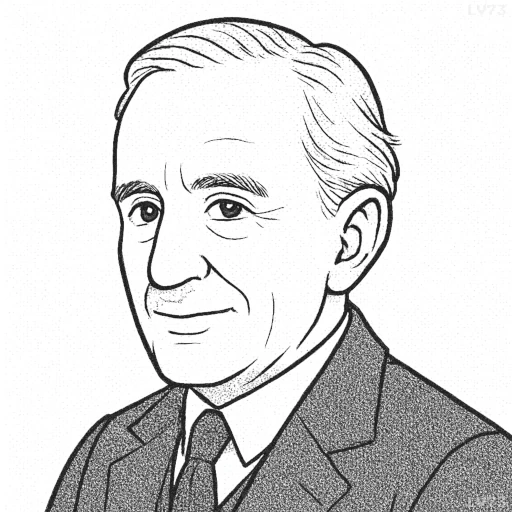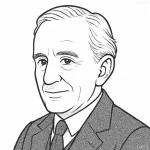“Many children make up, or begin to make up, imaginary languages. I have been at it since I could write.”

- January 3, 1892 – September 2, 1973
- Born in the Orange Free State (British)
- Author, linguist
table of contents
Quote
“Many children make up, or begin to make up, imaginary languages. I have been at it since I could write.”
Explanation
This quote from Tolkien reflects his lifelong fascination with language and the natural human tendency to create new systems of communication. Tolkien believed that the act of inventing languages was not only a form of play or creativity but also a way to engage deeply with the structure and beauty of language itself. He famously created entire languages, such as Elvish (Quenya and Sindarin), for his Middle-earth stories, but his interest in linguistics began at an early age. For Tolkien, the creation of languages wasn’t just an intellectual pursuit; it was a way to explore the expressive potential of human thought and to breathe life into fictional worlds. The reference to children making up languages emphasizes that this impulse to create and explore language is a universal one, one that is especially strong in young minds but continues to evolve and grow throughout life for those, like Tolkien, who are particularly fascinated by it.
Tolkien’s own experience reflects his obsession with philology, the study of historical languages, which led him to develop entire languages with their own grammar, vocabulary, and syntax. His love for languages and their origins fueled much of his literary work, allowing him to craft a world as linguistically rich and diverse as Middle-earth. His creation of imaginary languages gave depth to the cultures of Middle-earth, with each language reflecting the history, geography, and philosophy of the people who spoke it. By inventing languages, Tolkien was able to give his world a sense of authenticity and a feeling of timelessness. The languages were not just tools for communication but were woven into the fabric of the culture and identity of the characters who used them.
In a modern context, this quote speaks to the creativity and imagination inherent in language itself. Many people, especially writers or those with a deep appreciation for linguistics, are naturally drawn to the idea of inventing new ways of speaking or writing. This impulse can be seen today in the rise of constructed languages (like Klingon or Dothraki), and it also reflects a broader desire for self-expression and world-building. Tolkien’s early habit of creating languages illustrates the power of language as a tool for personal creativity, cultural exploration, and the crafting of entire worlds, a practice that has persisted in modern fantasy literature, games, and even digital spaces. It also highlights the playful and innovative side of language, suggesting that at its core, language is not just for communication but a canvas for expressing complex ideas and crafting new realities.
Would you like to share your impressions or related stories about this quote in the comments section?

